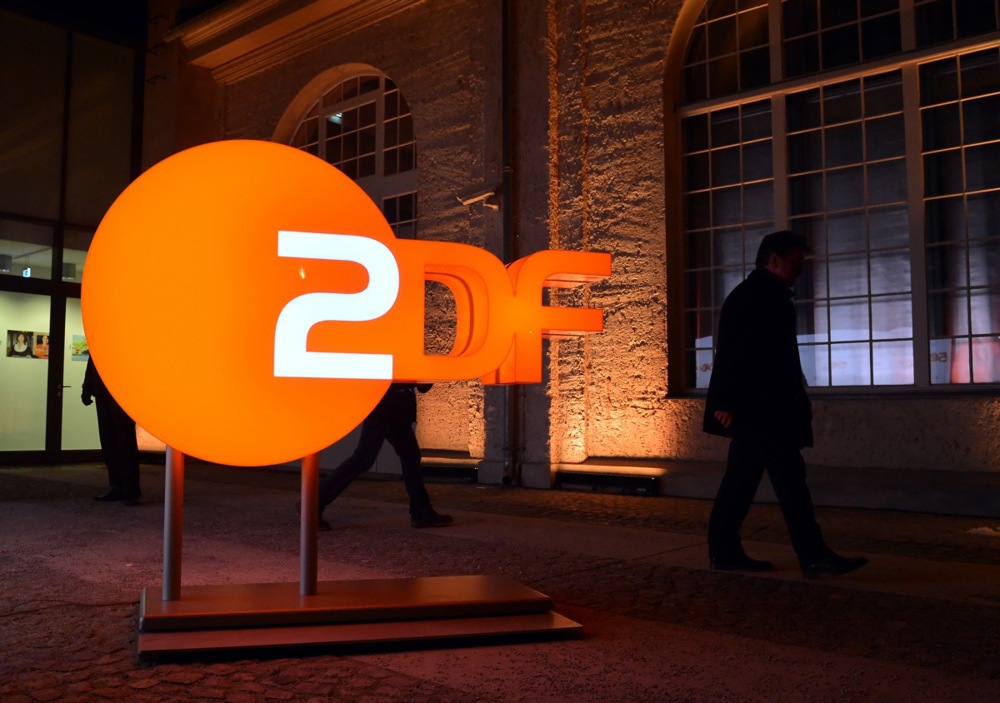Western society is unravelling, but not for the reasons you have been told. The source of our civilisational crisis is not so much about Left versus Right, or even immigration versus integration. It is about something far more fundamental: The collision of three mutually incompatible cultures within a single political body — premodern, modern, and postmodern.
These cultures cannot peacefully coexist, and their clash is tearing Western civilisation apart from within.
For decades, we have been fed a narrative that multiculturalism is our strength, that diversity enriches our societies, and that integration is merely a matter of time and goodwill. This is a dangerous delusion.
The real challenge facing Europe and the West today is not ethnic or even primarily religious, but it is profoundly cultural. And until we understand this distinction, we will remain trapped in endless, unproductive debates that miss the point entirely.
As I laid out in my most recent podcast for Brussels Signal (link below),we must first define what we mean by premodern, modern, and postmodern cultures.
These are not abstract academic categories but lived realities that shape how people understand loyalty, identity, and their place in the world.
Premodern cultures are organised around kinship, tribe, and clan.
Whether in Afghanistan, parts of sub-Saharan Africa, or other regions of the developing world, the primary loyalty is not to the state but to family and tribal structures.
Take Afghanistan as an instructive example: The Taliban’s swift reconquest of the country occurred not because they possessed superior firepower, but because the Western attempt to impose modern political structures on a society still governed by premodern loyalties was doomed from the start.
The average Afghan’s identity is defined by whether he is Pashtun or Tajik, and his allegiance flows to tribal elders and warlords, not to an abstract notion of Afghan citizenship.
To be clear, this is not a racial argument at all, but an anthropological and historical one.
European societies were once organised along similar lines.
Scotland before the Enlightenment operated as a premodern culture, but through intellectual and social development transformed itself into a modern one.
As Thomas Sowell brilliantly documented in his book, Black Rednecks and White Liberals, even early waves of Irish and Scottish migration to America brought premodern cultural patterns that only later gave way to modern values.
The crucial point is this: Cultures can evolve, but the process is neither automatic nor painless.
Modern culture, by contrast, is defined by the nation-state as the highest and most efficient form of social organisation. It balances individual rights with collective obligations.
In modern culture, there is a German, a Frenchman, an Englishman, an American: National identities that command primary loyalty despite ethnic, religious, or regional differences.
The United Kingdom provides a perfect illustration: English, Welsh, Scots, and Northern Irish maintain distinct ethnic identities, yet all historically shared loyalty to the British state.
This worked because all groups belonged to the same modern culture, even if they represented different ethnicities.
Germany’s unification in 1871 tells a similar story. Schleswig-Holsteiners, Saxons, Bavarians, Pomeranians, and Prussians could reasonably be considered distinct ethnicities, yet they unified around the concept of the German nation.
The United States followed an analogous path, at least as long as immigration came primarily from other modern European cultures (Scandinavia, Germany, England, France), newcomers integrated rapidly because they shared fundamental cultural assumptions about the nation-state, individual autonomy, and civic obligations.
Postmodern culture represents the third element in our civilisational crisis. Dominant among Western elites since the 1960s, postmodern culture is characterised by hyper-individualism, rejection of grand narratives, and hostility toward the very concept of the nation.
Post-moderns view national identity as a “bourgeois smokescreen” that prevents individuals from achieving authentic self-realisation.
Cultural relativism reigns: All values are equally valid, all identities equally legitimate.
The environmental movement, neo-racial identity politics, and much of contemporary progressive ideology are fundamentally postmodern movements.
What makes this particularly dangerous is that postmodern elites often share the same ethnicity, religion, and lineage as those who hold modern cultural values.
The culture war rages most intensely not between different ethnic groups, but between people of similar backgrounds who have fundamentally different conceptions of loyalty, nation, and civilisation.
Here we encounter one of history’s strangest political phenomena: the alliance between postmoderns and premoderns against modern culture.
Why would Greta Thunberg, the embodiment of post-modern environmentalism and individualism, make common cause with Hamas fighters representing deeply premodern tribal and religious loyalties?
The answer is simple: The enemy of my enemy is my friend.
Both groups see modern culture as defined by the nation-state, patriotism, nationalism, and Western civilisation itself as their primary adversary.
Postmodern elites deliberately opened the doors to mass migration from premodern societies, believing they could use this influx to dismantle the modern nation-state.
They assumed they could remain in control of the spirits they summoned.
They were catastrophically wrong.
Migration policy over the past fifty to sixty years has enabled massive population transfers from premodern cultures into modern societies.
Simultaneously, Western elites have embraced postmodern values that reject the very foundations of the societies they govern.
The result? Those who actually built modernity — who created the political systems, civic institutions, and social trust that make Western life worth living — now find themselves attacked from two sides.
The modern nation-state functioned effectively because it created reciprocal bonds of loyalty between governors and governed.
When both shared the conviction that the state existed to serve the nation’s interest, government could remain relatively limited.
You could have a system like Britain’s, where one party governed while the other served as “Her Majesty’s loyal opposition” — disagreeing on means but united on ends.
This consensus has collapsed.
We now have parallel societies defined by incompatible cultural frameworks.
In Britain, Indian employers preferentially hire Indian employees; Pakistanis do the same. This is not an indictment but a recognition of how premodern loyalty structures operate.
In modern cultures, such nepotism was discouraged because primary loyalty belonged to the nation and its institutions.
In premodern cultures, family and tribal loyalty supersedes all other considerations.
Consider the philosophical question debated in ancient Chinese thought: If your father commits a crime, should you report him to the authorities?
Confucian and Daoist traditions answered No — family loyalty trumps state loyalty.
This is the essence of premodern culture.
Modern Western nation-states established precisely the opposite principle: Your obligation to the law and nation supersedes even family bonds (though we maintain limited exceptions for spouses and close relatives).
These are not compatible worldviews.
We must be honest about what this means. Migration between countries sharing modern cultural values poses few integration challenges.
Americans moving to Britain, Austrians to Germany, French to Scotland they all tend to integrate rapidly because they share fundamental assumptions about nation, state, and civic obligation despite differences in religion or ethnicity.
But migration from premodern cultures into modern ones creates inevitable conflict unless newcomers fully assimilate into modern cultural frameworks.
This is extraordinarily difficult.
Cultural loyalties and identities operate at the emotional and instinctive level, not the rational one. They cannot be overcome with citizenship tests or signed declarations.
The transformation from premodern to modern culture requires deep socialisation into new ways of thinking about loyalty, identity, and obligation.
Those of us on the Right who defend the modern nation-state have done a poor job explaining why it represents humanity’s highest achievement in social organisation.
We have allowed the narrative to be dominated by stories of world wars, colonialism, and imperialism, as if these tragic episodes discredit nationalism itself.
But consider this: The reason World War I and II were so devastating is precisely because they were fought between societies with unprecedented levels of social organisation and collective action capacity.
The modern nation-state’s power for both good and ill derives from its unparalleled efficiency.
European Imperialism stemmed not from uniquely European cruelty, since exploitation has always existed in human history.
The true difference was the superior organisational capacity of modern nation-states.
Domination came first and then exploitation followed.
This is precisely the opposite of what we are usually told.
Today’s Western states face an impossible choice: which culture will they defend?
For now, they have sided with the postmodern-premodern alliance against modern culture.
But the moderns still constitute the majority in most Western nations.
The question is whether they will accept the complete erosion of their cultural dominance, or whether they will fight to preserve it.
This is why fears of civil unrest and communal violence are not unfounded.
We have created societies where three incompatible cultures occupy the same territory, subject to the same government, but with fundamentally different conceptions of loyalty, identity, and obligation.
History teaches us that such arrangements are inherently unstable.
The distinction is not ethnic or racial — it is cultural.
You can have strong bonds of solidarity among Germans, Hungarians, Austrians, British, and French who all share modern cultural values, despite their different nationalities.
But you cannot maintain social cohesion when premodern, modern, and postmodern cultures all claim authority within the same political body.
We face a civilisational crossroads. For Western societies to survive and prosper, modern culture must prevail.
This does not mean rejecting all cultural diversity— multi-ethnic societies can thrive when united by shared modern cultural values, as history repeatedly demonstrates.
But it does mean honestly confronting the reality that not all cultures are compatible, and that the civilisation we have inherited depends on defending the cultural foundations that made it possible.
The real culture war is not what you have been told it is. It is time we started fighting the right battle.
Watch the full episode on the Brussels Signal YouTube channel, where we explore the ideas mainstream media will not touch. Subscribe for weekly analysis that challenges the narratives tearing Europe apart:





French judge dismantles democracy to ‘protect’ it from the will of the people